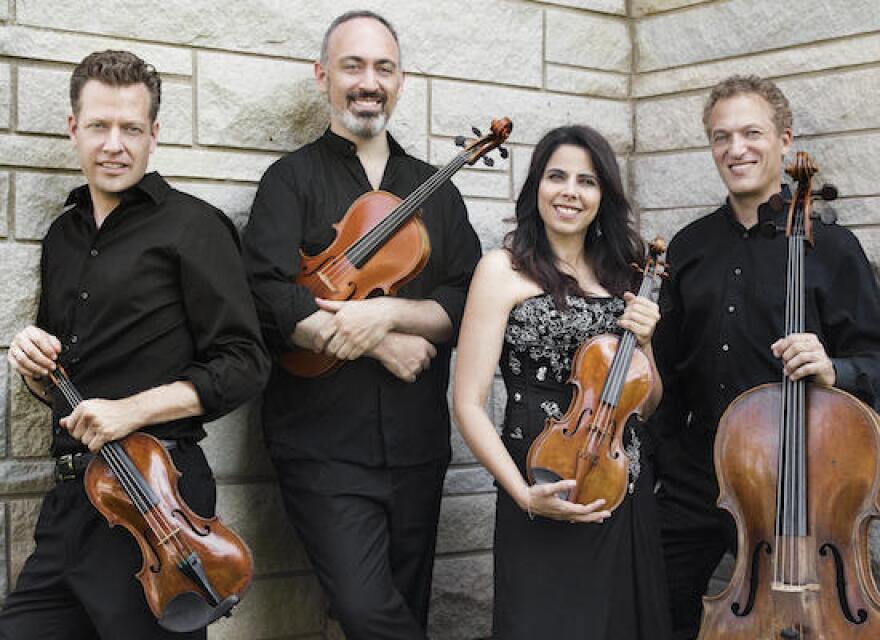"It’s like a lovefest."
That’s how Grammy Award-winning classical guitarist describes her collaboration with the world-renowned .
"We feel a real kinship with each other."
That kinship formed during the summer of 2016, when the quartet performed with Isbin on her annual recital at the Aspen Music Festival. Since then, Isbin and the quartet have toured together and, most recently, have recorded Souvenirs of Spain & Italy (Cedille Records), a collection of works for guitar and string quartet by Italian and Spanish composers.
The recording leads with a hidden gem of the guitar repertoire, Mario Castelnuovo-Tedesco’s Quintet for Guitar and String Quartet, Op. 143, a first-rate work as profound as it is beautiful. This piece should be standard fare in guitar recitals and chamber music concerts, but it is not. In a recent interview, I asked Sharon Isbin why we don’t hear the Castelnuovo-Tedesco Guitar Quintet performed all the time.

"I think one of the reasons is that it is so difficult," Isbin said. "It’s really challenging for all of the instruments. It’s almost like a concerto level of preparation required for each of the five of us. And we had the luxury of being able to rehearse it extensively and then perform it a number of times before the recording, and that makes a big difference."
Vivaldi’s Lute (Guitar) Concerto in D, RV 93 is as ubiquitous in the concert repertoire and on recordings as Castelnuovo-Tedesco’s Guitar Quintet is rare. A true mainstay of the guitar repertoire, Vivaldi’s concerto appears on Souvenirs of Spain & Italy in Emilio Pujol’s intimate arrangement and with Isbin’s own historically informed ornamentation.
"There’s a real intimacy, Isbin said, “and I can explore in the slow movement my embellishments in the baroque performance style that I add myself to the repeats of the slow movement. And all of that gives it a very unique flavor."

The recording wraps up with arguably the most Spanish of all works for guitar and string quartet – the Fandango finale of Luigi Boccherini’s Quintet in G for guitar and String Quartet. An Italian-born cellist and composer, Boccherini spent most of his career in Spain, where he first worked for the Spanish royal family, then ran afoul of the king in a moment of musical pique.
The modal inflections of Boccherini’s Fandango give the movement its unmistakably Spanish feel, and Brazilian castanet virtuoso Eduardo Leandro’s improvisations make you wonder why Boccherini didn’t include a part for castanets in his original conception of the piece.
"(Leandro) adds such a wonderful color and flavor to this music," Isbin said.
Listen to the audio file above to hear excerpts from Souvenirs of Spain & Italy, and to hear Sharon Isbin talk about this deliciously evocative music and how her recent work with noted Indian classical musicians has caused her to rethink how she plays Spanish music.



